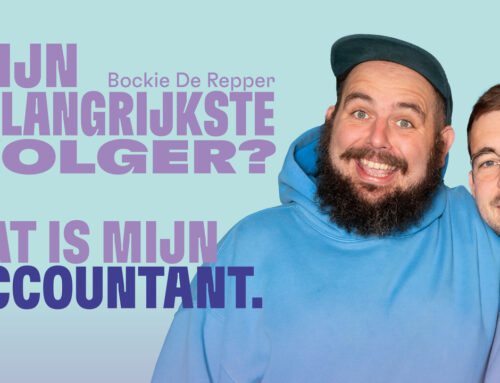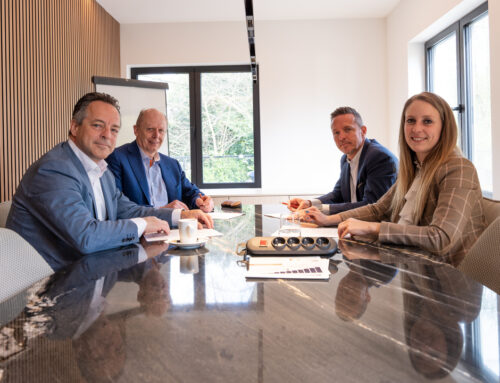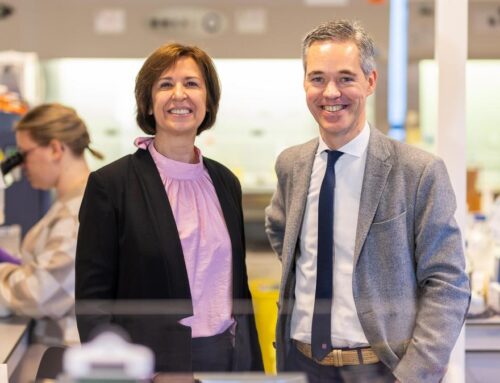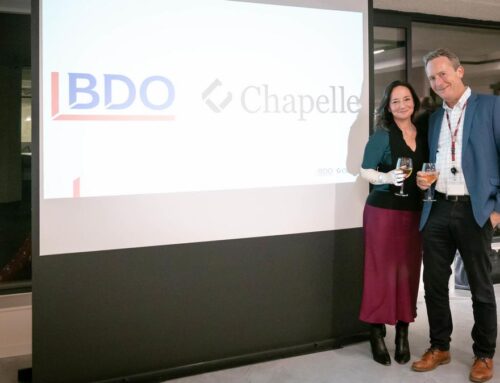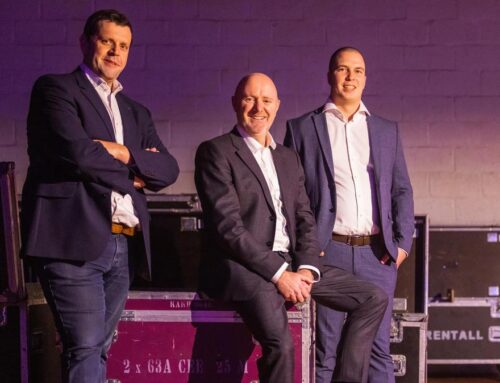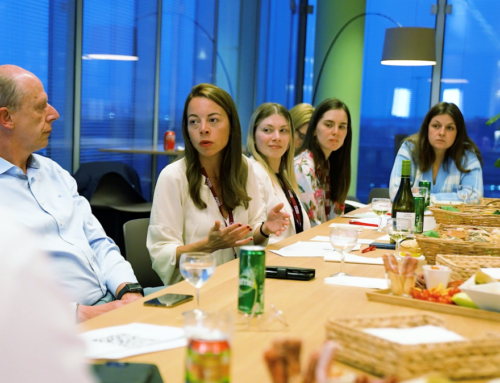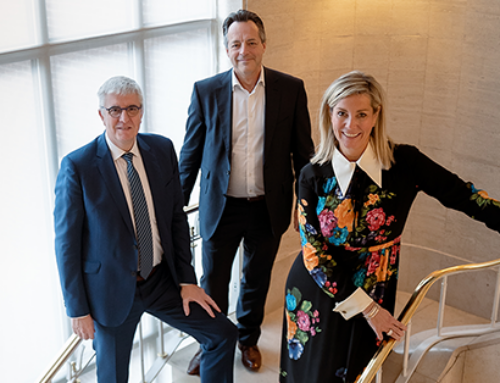How different are family businesses from corporates?
Experts Hans Wilmots and Pursey Heugens share their insights
Are family businesses less formally organised than the so-called corporates? What can corporates learn from entrepreneurial families? And are family businesses more resistant to crises? Jan Oosterlinck, Partner Family Business Advisory at BDO Belgium, asked Professor Pursey Heugens (Rotterdam School of Management) and Drs. Hans Wilmots (UHasselt, former CEO of BDO Belgium and CEO of BioRICS).
Jan: Pursey, your recent research shows that family businesses have a more informal organisation on various decision-making levels. Is this a disadvantage?
Pursey: “On the one hand, there are more similarities and overlap between family businesses and corporates than we think. It is a myth that family businesses, especially in mature economies such as ours, are less professionally organised than corporates. On the other hand, family businesses are not as reticent when it comes to letting their individuality and identity shine through in the management choices they make. Rather than make them less professional, these informal management practices tend to be more focused on the company’s specific situation.”
Hans: “Family businesses are essentially often less formal than other businesses, but that does not make them any less professional. This distinction is important because they also succeed in attracting talent that experiences and initiates this specific professional evolution.”
Jan: Family businesses have a strong vision. In many cases, this has never been committed to paper. This makes it more difficult for external parties to understand the efforts they make. Would family businesses do better to formalise their vision more?
Pursey: “Today’s companies constantly have to legitimise themselves to all kinds of stakeholders. Governments and public authorities are always looking for reassurance and security. On the one hand, it goes without saying that family businesses must be legitimate, but they should also take some time to further define their identity. On the other hand, they also need to engage with legislators and supervisory authorities to see whether the current compliance pressure and framework for accountability is the best. Something that almost never happens in the Netherlands, whereas family businesses should take a more united stance with respect to policymakers to facilitate long-term change.”
Hans: “The situation in Belgium is very similar. Many family businesses are reluctant to admit that a number of things are not going as they should. On the outside, the picture is often a bed of roses. Family businesses would therefore benefit from being honest about their problems and using this ‘memorandum’ to establish an interest group of peers to convince the authorities of the need for reforms.”
A foundation (fondation/stichting) or a partnership (société simple/maatschap) as a control structure for the family business?
A Belgian private foundation can be established as a so-called administrative office (‘PSAK’ or ‘Private Stichting Administratiekantoor’). In this instance, the shares of the family business are placed in a foundation (fondation/stichting) so that all decisions regarding the shares (sale, voting right at the general meeting, and so on) can be made by the foundation’s governing body for example. In exchange for receiving these shares, the foundation issues certificates that solely give entitlement to the asset benefits arising from the shares of the underlying company/ies. Moreover, the foundation is considered fiscally transparent under certain conditions.
“One of the big differences with the partnership or ‘maatschap’ is the duration,” says Rutger Van Boven, Partner BDO Estate Planning. “The foundation or ‘stichting’ allows you to secure the family business over several generations. After all, a PSAK can be established for an indefinite duration. A partnership or ‘maatschap’, on the other hand, is usually used to organise control over the family business for a specific period of time. It is worth bearing in mind that any of the partners can terminate a partnership that is established for an indefinite duration, meaning the entire structure was essentially all for nothing.”
STAK or PSAK?
Until recently, family businesses for the most part preferred to establish a Dutch foundation (the so-called ‘STAK’ or ‘Stichting Administratiekantoor’). It had a long tradition, after all. Today, Rutger sees no longer any reason for this. “Belgian foundations can also have a sole nowadays. Moreover, the costs of ensuring the foundation’s daily operations abroad are higher. Finally, the Dutch transparency rules are more far-reaching than the Belgian ones.”
Would you like to know more about the pros and cons of a STAK or PSAK? Or about the accounting, tax and administrative obligations that a PSAK must meet every year? Contact Rutger Van Boven, Partner BDO Estate Planning: rutger.vanboven@bdo.be
Jan: Despite the lack of formal processes and procedures, family businesses appear to be extremely efficient, both financially and in terms of innovation capacity and productivity. So what can large corporates learn from family businesses?
Pursey: “Good informal management is mainly about knowing how to manage a culture and how to create a ‘value’ company. Focusing on long-term goals that are crucial for your business and the commonality and values you share play an important part in this. In this regard, family businesses often excel at this, more so than corporates, because they tend more often to start ‘from the kitchen table’, which facilitates conversations.
To create a culture that is based on innovation and inclusiveness, you also need people who convey this culture. Not an interim manager who comes to the rescue, but champions within the organisation who know all about the company’s roots and values and can convey them. Unfortunately, family businesses are also increasingly going the way of ‘sloganomania’. This often happens because they have worked with an external agency that wants to calibrate the company’s values too quickly against the current zeitgeist.”
“Calibrating your company’s core values against the zeitgeist is crucial for keeping them alive.”
Jan: How important is documenting these family values?
Hans: “The most important thing is that these values are discussed frequently, where necessary with guidance from an external party. Where do we come from? Where are we going? How do we go about this? Values are the cornerstone of your whole story. External talent often finds it easier to adhere to the same value pattern in family businesses because these types of companies tend to focus more on safeguarding this heritage, these values than large corporates.”
Pursey: “Calibrating your company’s core values against the zeitgeist is also crucial for keeping them alive. Our society is changing more quickly than the values of a family business. You must therefore ask yourself the question: do I accept this discrepancy and replace my values, or do I transpose them so that they appeal to the next generation?”
Jan: Attracting good, often technical profiles continues to be a challenge for family businesses. Which creative approach should you use for this?
Pursey: “A practical example of this are the large corporates that come to recruit at the University of Rotterdam. By comparison, family businesses still have a relatively limited self-organising capacity when it comes to further developing these types of relationships with the academic world. But that is exactly where they should be looking for the talent they so urgently need.”
Hans: “Even though some students prefer to start their careers with a large corporate because of the many advantages, I have seen that many of them nevertheless opt for the culture of a family business.”
“Family businesses have a kind of speed, flexibility, and creativity which is less prevalent in large corporates.”
Governance Mentoring for SMEs
BDO has concluded a structural partnership with the GUBERNA knowledge institute to further professionalise governance in SMEs (including family SMEs). Joint studies and seminars are organised to transpose this into practice. For example we organise, among other things, two afternoon training sessions on ‘Governance Mentoring for SMEs’ at various locations.
More information can be found at www.guberna.be > Governance mentoring for SMEs.
Also read the article ‘Good governance is no longer an option’.
Jan: Assessments are a useful tool in large companies for mapping out the potential of employees and future development. Why are family businesses less inclined to use this tool?
Hans: “While seeking external advice is often useful, assessments sometimes also miss the mark. For family businesses, an assessment is essential when the next generation is ready to take over at the helm. It helps to objectify that process and make an evaluation.”
Pursey: “Despite the fact that I think poor-quality assessments are rife, an external perspective can take the sting out of the succession process. Especially if you combine this tool with other ones so that the process takes place smoothly.”
Jan: The heirs – or ‘NextGen’ – often seem insufficiently prepared to follow in the footsteps of their parents or family. And yet, such a preparation is crucial if you want to avoid problems, isn’t it?
Pursey: “Start the succession process as early as you can and ask yourself two questions as a family business: who manages the business? And who maintains the relationships with shareholders and family members? To secure your long-term survival, you must dare to tackle these dynamics simultaneously instead of having one CEO do everything at the same time.”
Jan: The last few years and months have been turbulent in macroeconomic and geopolitical terms. The war in Ukraine, the energy crisis, delays in the global supply of raw materials and resources, and so on. What assets do family businesses have to remain resilient? Why do family businesses recover more quickly after crises?
Pursey: “In the short term, every company will struggle in a crisis. Family businesses are no different in this respect. In the long term, many family businesses tend to be slower when it comes to reducing their R&D and they are also less likely to dismiss key employees. This allows them to swing into action more quickly when the recession wanes and economic growth resumes.”
Hans: “Family businesses have a kind of speed, flexibility, and creativity which is less prevalent in large corporates. Thanks to informal management practices, employees are more engaged and family businesses come up with creative solutions that you don’t find so often at corporates.”
“Timely preparation and external guidance for the transition to the next generation are crucial in a family business.”
Jan: Finally, family businesses are often accused of being overcapitalised. Will their more conservative financing structure prove to be the right decision given the current economic turbulence?
Pursey: “While this is true to a certain extent, it’s not a universal recipe. When money was scarce during the credit crisis, many conservatively financed companies benefited. During the COVID-19 pandemic, money was cheap and turned out to play a less important role. Family businesses do have the advantage of being able to pay more attention to their internal management in times of crisis, whereas CEOs of large companies must focus primarily on keeping the company’s shareholders happy.”

